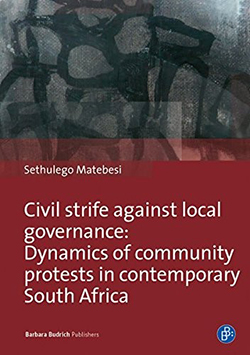Latest News Archive
Please select Category, Year, and then Month to display items
03 October 2018
|
Story UFS
|
Photo Katlego Sekele
 Students engaged authorities and Student Affairs
representatives on sexual and gender-based matters.
Students engaged authorities and Student Affairs
representatives on sexual and gender-based matters.
Do you know enough about the Sexual Harassment, Sexual Misconduct and Sexual Violence policy adopted by the university in June 2018? The Office for Gender and Sexual Equity (GSE) at the University of the Free State (UFS) hosted a dialogue on the role of the institution in matters of sexual and gender-based violence and addressing issues surrounding sexual violations.
Developments such as the countrywide #TotalShutdown: Intersectional Women’s March Against Gender-based Violence last month serve as proof of the dire need for issues surrounding sexual violations to inform policies and active safety measures.
Policy purpose
According to the policy, the objectives are to create a safe and enabling environment, establish a common understanding of what constitutes sexual harassment, sexual misconduct and sexual violence, provide applicable and accurate information, ensure that victims receive the necessary support, clearly outline disciplinary procedures for perpetrators, and clarify institutional accountability.
Student’s take on solutions
Tammy Fray, a member of the Student Representative Council, who formed part of the panel at the discussion, says the policy is not a one-stop-shop solution. “The policy is a guiding document. We have to then use it to inform activist work. We cannot always put the onus on policies and codes of conducts to solve problems. However it is our responsibility within this academic space to come up with solutions that enhance the way the policy works.”
Be informed about the policy
It is important to understand the stipulations of the policy in order to make full use of it. Geraldine Lengau, Officer at the GSE said: “It’s important that students know that the institution is not operating in silos but that their demands have been heard and the institution has acknowledged that there is a need for the policy to be adopted. It also makes the process of reporting better with the assistance of the Sexual Assault Response Team coordinator.”
Valour inspires book on community protests
2016-10-18

The cover of Dr Sethulego Matebesi’s
book, Civil strife against local governance:
Dynamics of community protests in
contemporary South Africa, that will be
released on 1 November 2016.
Photo: Supplied
Two significant political events: the murder of an unarmed protester, and school children forced out of school sparked the idea to write a book on community protests.
The book, Civil strife against local governance: Dynamics of community protests in contemporary South Africa, by Dr Sethulego Matebesi, gives an academic account of service delivery protests in South Africa.
Research address protests in different communities
“The focus of my book is on community protests directed against municipalities in both predominantly black and white communities,” Dr Matebesi, senior lecturer in the Department of Sociology at the University of the Free State, said. The funding for the book was received from the National Research Foundation and the Erasmus Mundus EU-Saturn Scholarship.
Informs literature on service delivery protests
The struggle against municipalities reaches across geographic and demographic boundaries, but the violent turn of protests in black communities in contrast to white communities has become somewhat of a hegemonic account by scholars. “The book connects the critical issue of community protests with the equally precarious issue of political trust in local government,” Dr Matebesi said. Case studies in the book are indicative of significant shifts in community protest – thus making it timely. Dr Matebesi said: “The book informs the growing literature on community protests and also fills an empirical void by including protesters in residents’ associations.”
“The book is a personal milestone and
the single greatest return on the
sacrifices made over the past 4 years.”
Personal milestone worth the sacrifice
Research was conducted between 2012 and 2015, whereby two case study sites were selected in four provinces to account the different tactics used. “The book is a personal milestone and the single greatest return on the sacrifices made over the past four years,” Dr Matebesi said.